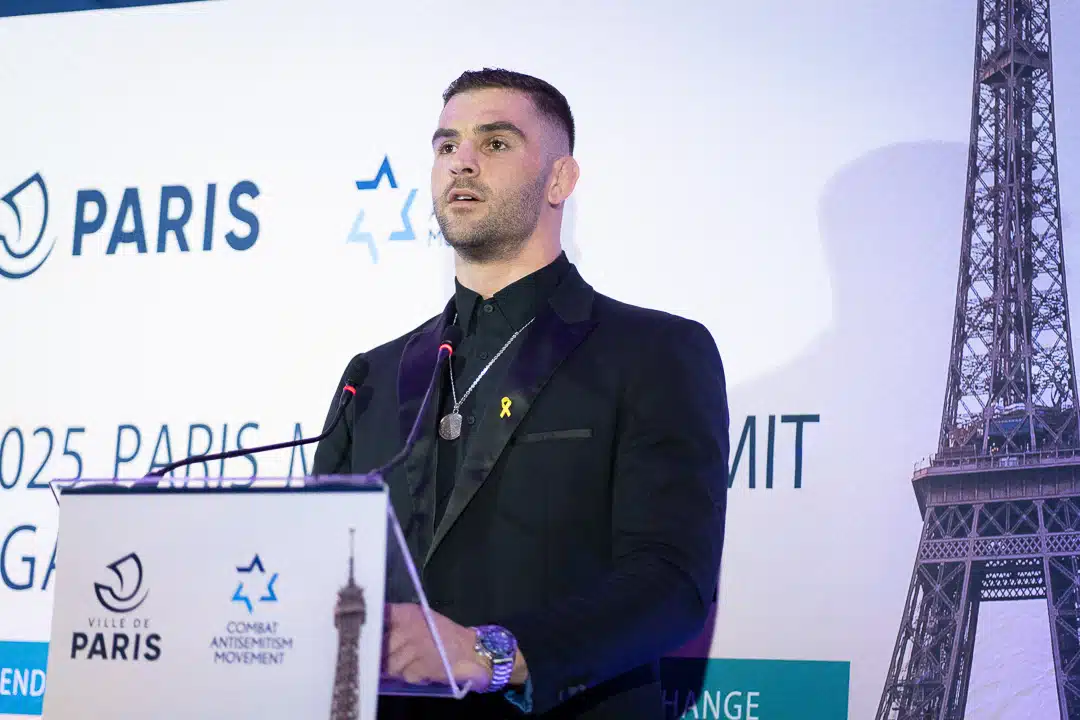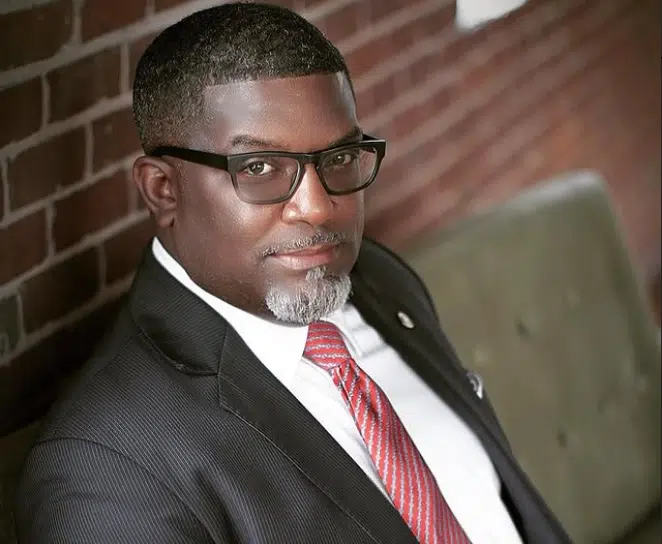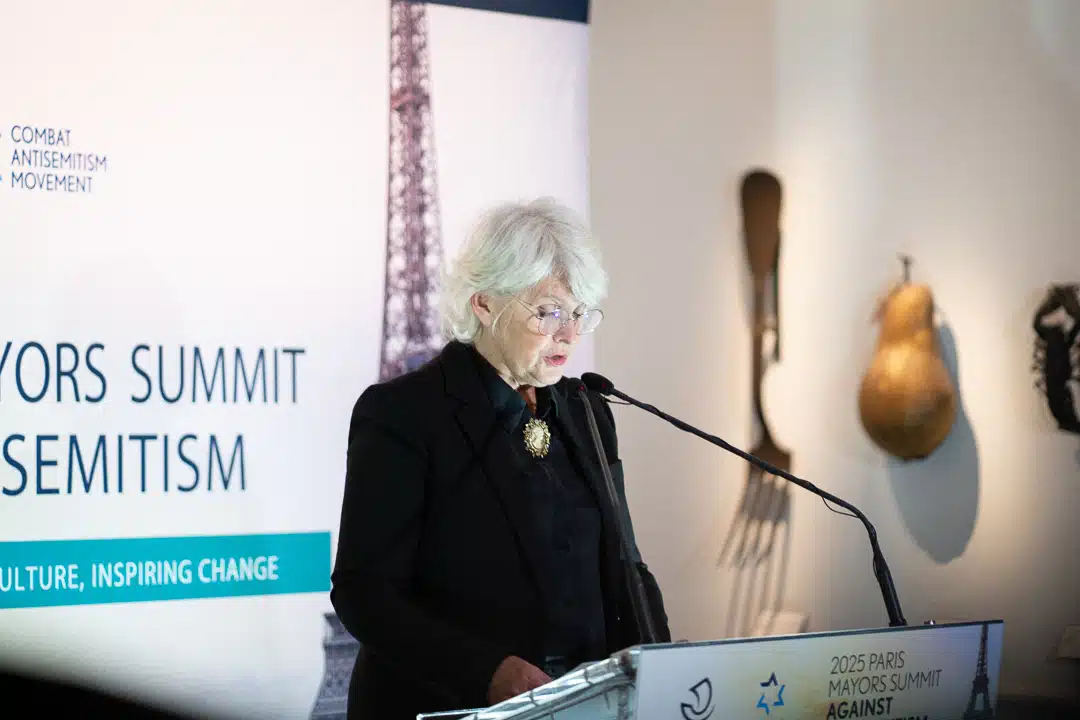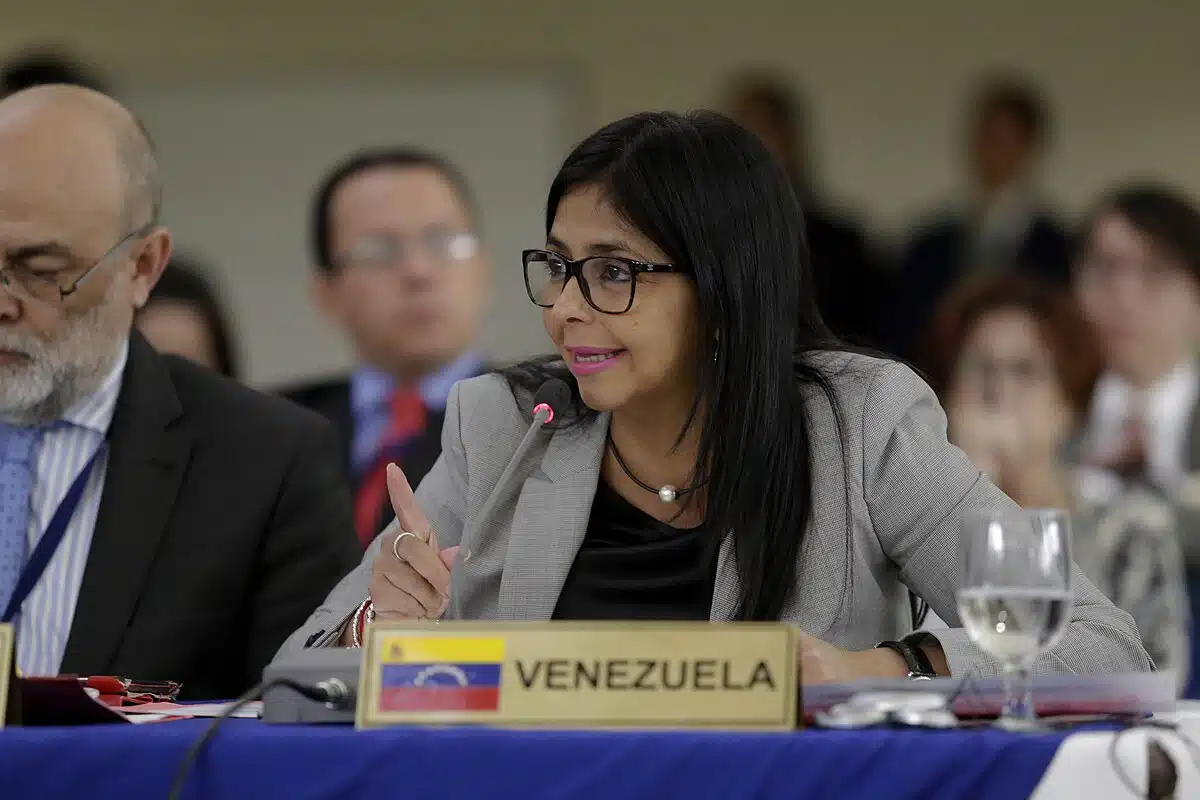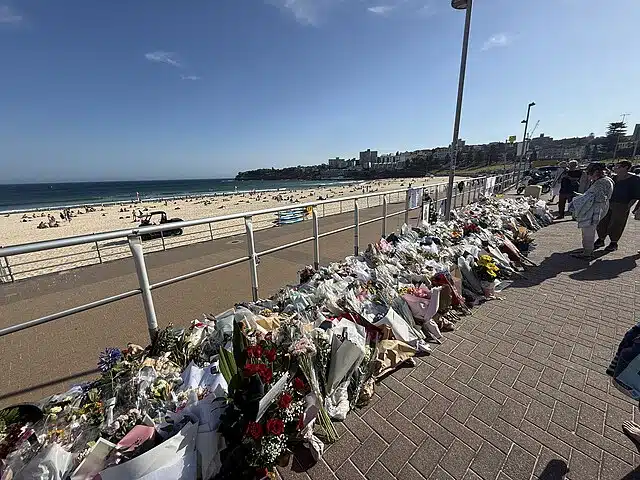|
Getting your Trinity Audio player ready...
|
David Lopez — Chief of Staff for Nebraska Governor Jim Pillen — recently traveled to Israel as a member of a U.S. governors’ chiefs of staff delegation organized by the Combat Antisemitism Movement (CAM), as well as a state trade mission led by Governor Pillen.
Upon his return to Nebraska, Lopez spoke with CAM about his experience in Israel, reflecting on the lessons of the trip and sharing the messages he had brought back home.
What stood out most to you during your time in Israel, and what lasting impact did the experience have?
“I’ve thought a lot about this,” Lopez began. “The good news about both the Chiefs of Staff trip and the Governor’s Trade and Solidarity Mission is that while they had different goals, they were very complementary.”
He emphasized that the delegations arrived in Israel already deeply committed to the U.S.–Israel partnership. “Neither my governor, my fellow chiefs of staff, nor I required any persuasion about the value of the U.S.–Israel alliance,” he said. “We already understood that supporting Israel isn’t just morally right, but a strategic and national security imperative.”
Witnessing it firsthand, Lopez said, brought that conviction to life. “It was good to have what we already knew to be true — both as a matter of principle and national security — affirmed on the ground,” he noted.
Lopez praised CAM for crafting a program that combined depth with substance. “CAM did an excellent job showing the direct link between Israel as the historic homeland of the Jewish people — not just from a religious standpoint, but as historical fact,” he explained. “Visiting Shiloh and seeing that truth through archaeology and science was something I hadn’t experienced before.”
That experience, he continued, sharpened his understanding of antisemitism’s modern forms. “The trip underscored that anti-Zionism and anti-Israel rhetoric aren’t side issues of antisemitism — they’re central to it,” Lopez said. “That’s highly relevant for us in state government, where much of this policy becomes real.”
Reflecting on the visit, Lopez called it both grounding and motivating. “It wasn’t a surprise — it was an affirmation,” he said. “The trip rearmed us with historical truth and strengthened our resolve. It didn’t create that resolve — we already had it — but it certainly fortified it.”

After witnessing Israel firsthand, what most struck you about the gap between perception and reality — and how can leaders help bridge it?
“What stood out most to me,” Lopez said, “was the sheer scale of the barbarity of the October 7th attacks.”
He explained that most Americans simply could not comprehend the horror of the Hamas atrocities. “I don’t think most Americans have any sense of just how depraved those attacks were — villages full of innocent people and children,” he said. “This wasn’t a military invasion or an assault on a base. It was a full-scale terrorist massacre, brutal in ways most people can’t imagine.”
The delegation saw evidence few outside Israel have been exposed to. “As leaders in government, we were in a unique position to bear witness to raw accounts and footage that most Americans — and even many Israelis — will never see,” Lopez said. “That experience brought home the gap between what truly happened and how the media often portrays Israel’s defensive fight.”
He noted that this distortion wasn’t new. “Sadly, this has been the pattern every time Israel has been forced to defend itself,” Lopez said. “From media and political standpoints, it’s always been Israel against the world.”
What message do you want to share with Nebraskans about standing with Israel and confronting antisemitism at home?
“Our message to Nebraskans is twofold,” Lopez said. “The governor’s mission was always framed as both trade and solidarity — and the two go hand in hand.”
He emphasized that support for Israel was not a niche issue or a matter of political convenience. “Israel is not an extracurricular interest of the United States,” he said. “It is a core strategic ally. Israel is in the same fight America is — against Islamic extremism, against terror, and, quite frankly, in a civilizational conflict. Israel just happens to be on the front lines.”
The partnership, Lopez continued, was mutually beneficial. “We get more out of our relationship with Israel than we put in,” he said. “In intelligence, innovation, and strategic cooperation, Israel is indispensable. Supporting Israel isn’t just morally right — it’s objectively good for America.”
That solidarity, he added, was reinforced through Nebraska’s expanding economic and academic partnerships. “Trade enhances friendship,” Lopez said. “The more you do business with someone, the more you depend on each other — and that’s good for both Nebraska and Israel. We’ve got some really exciting things developing in that space.”
Governor Pillen issued a proclamation in 2023 directing the state to avoid doing business with companies that boycott Israel. How will you ensure that policy is fully implemented across agencies?
“The governor believed it was essential to take that action because actions matter more than words,” Lopez said. “It’s important for American officials to voice support for Israel, but it’s equally important that the way we conduct business reflects that support.”
He pointed out that state governments wield real economic power. “We do a lot of business, buy a lot of things, and invest a lot of money,” he said. “You can’t just issue a proclamation and move on. It requires constant oversight and accountability.”
Under Governor Pillen’s leadership, he noted, Nebraska had taken proactive steps to ensure taxpayer dollars don’t end up supporting entities that undermine U.S. or Israeli interests. “We have to make sure we’re not inadvertently funding foreign adversaries or organizations out of step with our strategic priorities,” Lopez said.
That commitment, he added, extended beyond words to day-to-day implementation. “In the coming weeks, we’ll be circling back with all agencies to confirm the directive is being followed and remains firmly in place,” Lopez said. “This isn’t a one-time statement — it’s a standing policy.”
At a time when anti-Israel sentiment is increasingly normalized, has your office faced pushback for taking such a strong stand — and how do you stay grounded in those principles?
“If you’re not afraid to take a stand that might be difficult with people who oppose you on principle, you remain grounded in it,” Lopez said. “My boss is a perfect example of that. He’s fearless in principle — he has the courage to stand with his friends, period, full stop.”
That clarity of conviction, he explained, kept their administration steady amid political headwinds. “We don’t spend much time putting our finger in the air to see where the wind is blowing,” he said. “That gives you peace of mind — you don’t have to change course with every poll or headline. Staying true to principle is how you stay grounded.”
As for pushback, Lopez said he felt blessed to live in Nebraska. “Even though our Jewish community is small — about 8,000 in Omaha — it’s small but mighty. We’re fortunate to live in a remarkably tolerant place, full of patriotic Americans who support America’s friends — and that includes Israel.”
Nebraska has adopted the IHRA Working Definition of Antisemitism. How will you ensure it’s not just endorsed, but fully implemented across state policy and training?
“Under Governor Pillen’s leadership, we’ll continue working diligently to ensure that all state agencies follow his directives,” Lopez said. “The governor’s code agencies — those directly accountable to him == are expected to comply fully with his proclamations and executive orders, including this one.”
He noted that while administrative enforcement was critical, long-term strength lay in permanence. “Aspirationally, we’d like to see the IHRA working definition enshrined in statute,” Lopez said. “That’s where it has the greatest impact — when it’s codified in law. I know that’s a shared goal with CAM, and while some states have made progress, there’s still more work to do.”
Nebraska’s trade and solidarity mission emphasized cooperation with Israel in agriculture, technology, and education. How will you build on those partnerships to promote shared growth and counter antisemitic narratives?
“I’ll focus on the business side,” Lopez said, “because doing business with a partner strengthens your friendship with that partner.”
He noted that Nebraska and Israel were natural partners in agriculture, water innovation, and technology. “There are two places on earth that lead the world in water utilization and irrigation — Israel and Nebraska,” he said. “Our most important natural asset — the Ogallala Aquifer, the largest and most sustainable in the Western Hemisphere — is our God-given hedge against drought.”
The parallels, he added, were striking. “Israel has had to do the same thing — steward its water to make the desert bloom. Our irrigation technologies complement each other — Israel’s expertise in drip irrigation and Nebraska’s pivot systems for large-scale crops.”
“During CAM’s business roundtable, we met with an Israeli water measurement company already doing tremendous work in Nebraska,” he said. “Their representative visits every few weeks.”
Lopez highlighted another growing link — Nebraska’s agricultural exports to Israel. “We’re the only kosher beef exporter in the U.S. to Israel,” he said. “We brought the plant owner with us — he’s doubling production, putting more Nebraska kosher beef on Israeli tables.”
Lopez recalled a moment that captured the partnership in action. “One of his distributor’s trucks — branded with Nebraska Beef — pulled up to the King David Hotel while we were there,” he said. “That wasn’t staged. That’s what they look like in Israel. It was a perfect symbol of how far this partnership has come.”
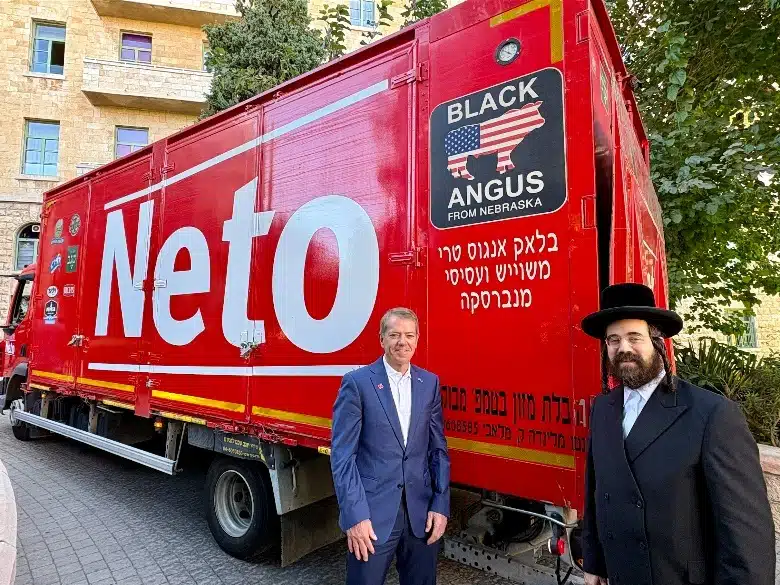
Beyond trade, he underscored defense cooperation as another source of pride. “Part of Israel’s Arrow missile defense system — so critical in protecting its citizens from Iranian attacks — is manufactured right here in Nebraska,” Lopez said. “The governor even presented Prime Minister [Benjamin] Netanyahu with a plaque that included a piece of that component. We’re proud to play even a small role in defending Israel’s people.”
Looking back on the delegations, which moments left the deepest impression on you — personally and professionally?
“That’s a tough one,” Lopez admitted. “So many moments left a mark. But I’ll share one I told our team at the end of the Chiefs of Staff mission — and later to [U.S.] Ambassador [Mike] Huckabee.”
He remembered a deeply emotional encounter at the site of the Nova music festival massacre. “We were sitting in a circle listening to a survivor share his story,” Lopez said. “In the middle of it, an older man approached. The guide and survivor hesitated, but he broke through — he was the father of one of the hostages and her boyfriend, recently released.”
The man’s English was limited, Lopez recalled, “but he thanked us as Americans for the role our country played in making that release possible.”
It caught me off guard,” Lopez said quietly. “I’m usually pretty good at bottling up emotion, but that one got me. I can still feel it.”
That moment, he continued, carried a deeper message. “As Americans, we don’t always hear gratitude from abroad,” Lopez said. “To hear it like that — from someone whose family had been directly impacted — was powerful. It wasn’t just gratitude for America or President [Donald] Trump — it was a reminder of something we have to live up to.”
For Lopez, that encounter crystallized what the mission was about. “It reminded me that as Americans — and as leaders in state government — we have a responsibility to keep earning that gratitude through our actions,” he said. “It was a small, unscripted moment in a trip filled with once-in-a-lifetime experiences, but that’s the one that stayed with me.”


